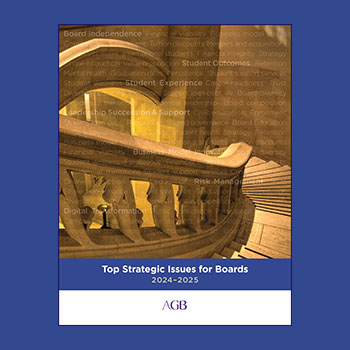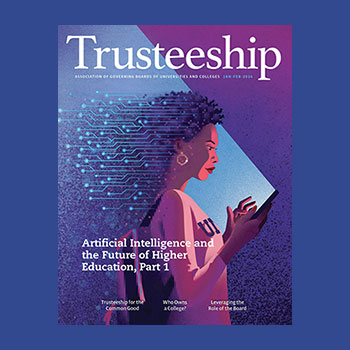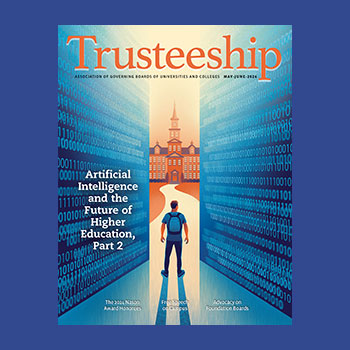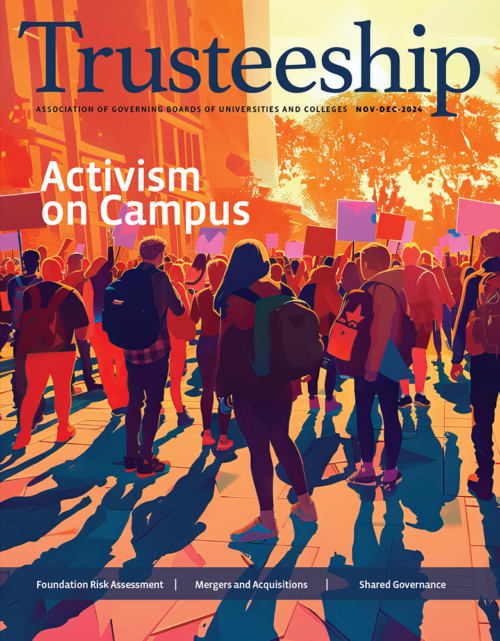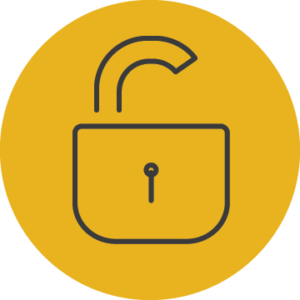Why this is important.
In today’s technology-driven world, higher education institutions cannot afford to be slow adopters of technology or resist technology-based challenges to the traditional classroom model of pedagogy. Institutions that successfully transitioned to online and hybrid-education environments during the COVID-19 pandemic relied on deeply interconnected technology to carry out their mission and many will continue to do so beyond the pandemic. There is no return to the status quo ante COVID-19. It is up to governing boards to ensure colleges and universities foster a culture that supports investments in technologies and leverages transformative technological opportunities.
Sources: Cyber Risk Oversight for Higher Education Boards: Key Principles and Practical Guidance for Foundation and Institution Board Members by AGB in partnership with ISA and AIG, AGB 2021
“After COVID-19: Driving Academic Transformation Through Public-Private Partnerships” AGB Blog Post by Michael B. Goldstein, April 29, 2021
Questions for boards.
Click below to reveal key questions for your board to consider:
Board Processes
Consequential Questions:
- What do we consider our most valuable assets and where do those assets reside? What additional layers of protection do we have for those assets?
- When was the last time our board discussed the ways we can increase our institution’s efficiency through smarter uses of technology?
- How has our board signaled to the campus community our commitment to support technological innovations that foster institutional change?
- Does our board keep current on new teaching and learning approaches in higher education and advances in information and instructional technologies that are critical to the higher education industry?
Sources:
Cyber Risk Oversight for Higher Education Boards: Key Principles and Practical Guidance for Foundation and Institution Board Members by AGB in partnership with ISA and AIG, AGB 2021
Top Strategic Issues for Boards 2020-2021 , AGB 2020
Board Engagement
Consequential Questions:
-
- Are our board members kept up to date on cutting-edge trends and technologies related to higher education and the institution?
- Is our board composed of individuals with diverse talents, skills, perspectives, and abilities— beyond just those related to providing financial support and raising money for our institution?
- Is the culture of our board supportive of technological innovation? Does our board have the right composition and committee structure to foster innovation?
Sources:
Cyber Risk Oversight for Higher Education Boards: Key Principles and Practical Guidance for Foundation and Institution Board Members by AGB in partnership with ISA and AIG, AGB 2021
Top Strategic Issues for Boards 2020-2021 , AGB 2020
Risk Management
Consequential Questions:
- Are we considering the cybersecurity aspects of our major business decisions, such as mergers and affiliations, partnerships, new program launches, etc., in a timely fashion?
- How has the COVID-19 pandemic impacted our institution’s utilization of technology?
- Have our board and president discussed the need for patience, the potential for failure, and the risks involved in supporting technological innovation?
Sources:
Cyber Risk Oversight for Higher Education Boards: Key Principles and Practical Guidance for Foundation and Institution Board Members by AGB in partnership with ISA and AIG, AGB 2021
Top Strategic Issues for Boards 2020-2021 , AGB 2020
Recommended resources.
We carefully curated these staff-picked resources for you:
Five Questions to Consider When Creating Your Digital Transformation Strategy
Blog Post
Amy Hilbelink
Artificial Intelligence and the Future of Higher Education, Part 1
Trusteeship magazine, January/February 2024
By David Tobenkin
Artificial Intelligence and the Future of Higher Education, Part 2
Trusteeship magazine, May/June 2024
By David Tobenkin
Aligning and Governing AI to Leverage Resources and Enhance Results
Blog Post
Stephen T. Golding


